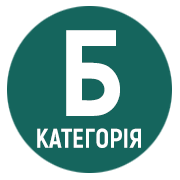УМОВИ, ПРИЧИНИ ТА ЧИННИКИ ВИНИКНЕННЯ РОМАНСЬКИХ МОВ
DOI:
https://doi.org/10.32782/2412-933X/2025-XXIV-6Ключові слова:
романські мови, дивергентний розвиток, народна латина, субстрат, діалект, романізаціяАнотація
Спрощена концепція прямого розвитку єдиної літературної латинської мови або будь-якої іншої, так званої «загальнороманської», в окремі романські й діалекти мови з народної латини протягом кількох століть не задовольняла багатьох дослідників: Г. Шухардта, Ж. Моля, Ф. Діца та ін. Основною метою представленої наукової розвідки є з’ясувати питання про характер розвитку та шлях утворення сучасних романських мов. Поставлена мета передбачає розв’язання таких завдань: вивчення сучасних теорій виникнення романських мов; з’ясування стану народної латини, яка потрапляла на романізовані території; розгляд етнолінгвістичних чинників виникнення сучасних романських мов.Основною причиною утворення сучасних романських мов був субстрат, на який наклалася вульгарна латина. На формування романських мов вплинули мови тих племен і народностей, які були підкорені Римом. Наслідок їх впливу на латину був різним: субстратом іспанської мови (як і всіх інших романських мов Піренейського півострова) є кельтський, іберійський та баскський; субстрат французької мови – кельтський, на півдні Франції ще давньогрецький (Марсель – раніше Марсіліо, Массалія – був грецькою колонією); субстратом італійської мови є італійські й етруські мовні риси. Наприклад, слова Roma і chianti походять з етруської мови; субстратом сардської мови є пунічний і давньогрецький; субстратом ретороманської мови (мов) є ретська (ретійська мова), яку уналежнюють до неіндоєвропейських дороманських мов Італії; субстратом румунської мови вважається фрако-дакійський. Процес романізації різних регіонів Європи тривав кілька століть, протягом яких сама латинська мова досить сильно змінилася. У процесі поширення латинської мови з Римської імперії вона потрапляла в провінції на різних стадіях свого розвитку. Романські мови розвинулися внаслідок дивергентного, відцентрового розвитку усної традиції різних діалектів колись єдиної народно-латинської мови.
Посилання
Кірковська І.С. Вступ до романської філології : підручник. Дніпро : «Пороги», 2018. 406 с.
Ascoli G. Archivio Glottologico Italiano. 1872. 630 p.
Diez F. Anciens glossaires romans corrigés et expliqués / Trad. par Bauer A. Paris, 1870. 162 p.
Diez Fr. Ueber die Casseler Glossen. Diez, KAR. 1849. S. 168–177.
Gröber G. Geschichte der romanischen Philologie. GRF. 1888. Bd. I. S. 3–139.
Lüdtke J. Prädikative Nominalisierung mit Suffixen im Französischen. Tübingen : Niemeiyer, 1983. 327 s.
Lаusberg H. Romanische Sprachwissenschaft. Bd. I. Einleitung und Vokalismus. Aufl. Berlin, 1969.
Meyer-Lübke W. Romanische Lautlehre. Leipzig, 1890. 564 S.
Mohl G. Introduction à la chronologie du latin vulgaire, Paris, 1899. 266 p.
Peruzzi E.V. Pisani, Geolinguistica e indoeuropeo. Memorie della R. Acc. dei Lincei. Roma, 1940. ser. VI. vol. IX. fasc. II.
Rohlfs G. Historische Grammatik der italienischen Sprache und ihrer Mundarten. 3 Bände (I: Lautlehre. II: Formenlehre und Syntax. III: Syntax und Wortbildung mit dem Register zu den Bänden I–III). Bern : Francke Verlag, 1954–1972.
Schuchardt H. Über die Lautgesetze: Gegen die Junggrammatiker. Berlin : Oppenheim, 1885. 39 s.
Schuchardt, Hugo: Der Vokalismus des Vulgärlateins. Standort : München, Bayerische Staatsbibliothek, 1866–1868. Vol. 1–3.






